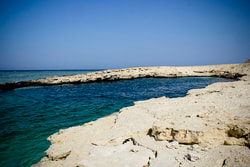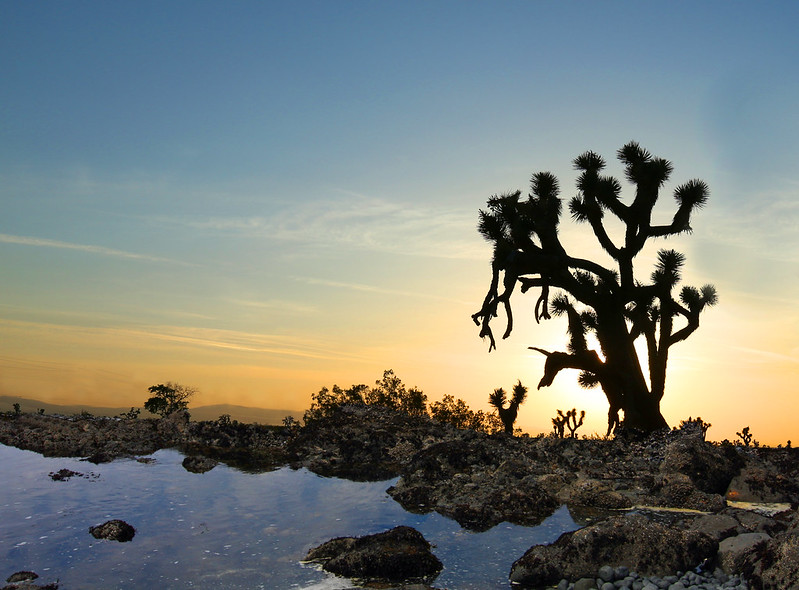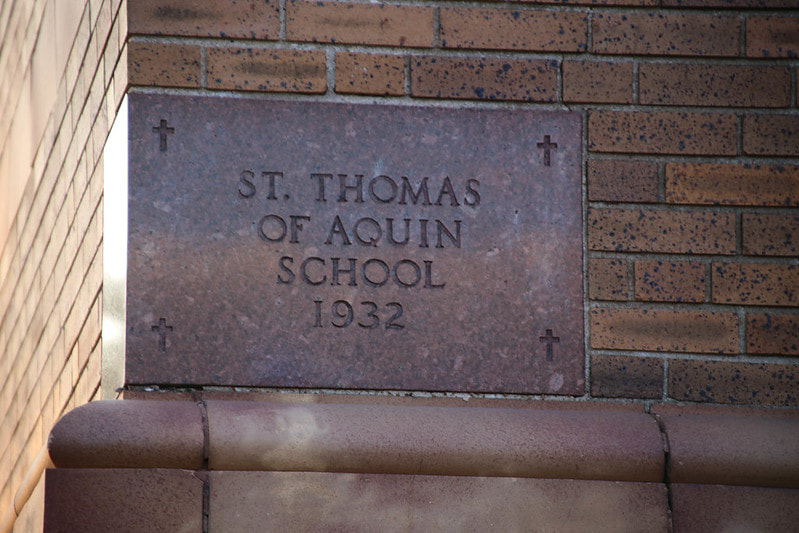|
It was in the desert that God gave the children of Israel revelation of who He is. The revelation was meant to bring more intimacy with Him. Thus, the second month on the Hebrew calendar, which we entered on Friday, is linked with light. It is called Iyar or Ziv, which means radiance. The Israelites were transitioning from slavery to daughter and sonship. Their knowledge of God was only from a few stories handed down from Abraham through the generations to them. The Lord's plan was to give them several powerful demonstrations of His nature. These would reveal the secrets of His covenant with them.
God has multiple names that describe His nature. I find it significant that the first name He introduced to the Israelites was Yahweh Rapha. The introduction would take care of a current problem and unveil a plan for the future. From the Red Sea, all of Israel traveled into the Desert of Shur. They found no water until they reached Marah. But the water was undrinkable because it was bitter. When Moses cried out to the Lord, he was shown a piece of wood/tree and instructed to throw it into the water to make the water drinkable. Then the Lord explained His covenant: "If you listen carefully to the Lord your God and do what is right in His eyes, if you pay attention to His commands and keep all His decrees, I will not bring on you any of the diseases I brought on the Egyptians, for I am the Lord, who heals you." (Exodus 15:26) The Lord brought the children of Israel out of Egypt with a mighty hand. Exodus 12:37 records this: "There were about 600,000 men on foot besides women and children." Psalm 105:37 tells us, "There was not one feeble person among their tribes." (KJV) When the Israelites looked at their healthy ranks, do you think they understood that it was God who healed and strengthened them for their journey? Perhaps not, otherwise why would God need to show them that He is Yahweh Rapha, Hebrew for “The Lord Who Heals”? Rapha encompasses body, mind and soul. The word is also used to mean healing of water, land and nations. The bitter waters of Marah were completely healed after Moses threw the wood into it. In the King James Bible, the word tree is used in place of wood. The sign of the tree/wood has significance. We see that God was demonstrating His healing plan for the present and future. The Son of God would come to earth to be nailed to a tree. He would enter the waters of death, overcome them, and rise to become Living Water for us. He was "pierced for our transgressions; He was crushed for our iniquities; the punishment that brought us peace was upon Him, and by His wounds we are healed.” (Isaiah 53:5) We do not have to look far to see the hand of the enemy at work. When sin entered the world the kingdom of darkness began to manifest. Diseases spread in the bodies of humankind and in the surrounding world. Romans 8:20 says, "For the creation was subjected to frustration…” Scripture explains that "creation waits in eager expectation for the children of God to be revealed" because when freedom and the glory of God come to them, all creation will be liberated from its bondage to decay. There is such a need for all humankind to have a re-introduction to Yahweh Rapha. Power for healing was demonstrated to the Israelites. It was followed by the spoken Word--"I am the Lord, who heals you!" Bitter waters were made sweet by the Lord who is the one who dispenses living water. He told the Samaritan woman at Jacob's well, "Whoever drinks the water I give them will never thirst. Indeed, the water I give them will become in them a spring of water welling up to eternal life." (John 4:14) After His encounter with the Samaritan woman, on the third day, Jesus went to Cana in Galilee where He had turned the water into wine. He met a royal official whose son was sick in Capernaum. This man begged Jesus to heal his son. Jesus said, "Go, your son will live. The man took Jesus at his word…” (John 4:50) Sure enough, the boy was healed at the exact moment that Jesus made the declaration of healing! Are we taking Jesus at His word? Do we believe in our hearts the words He has spoken? God loves His creation—all aspects of it! Jesus was sent to earth to heal us. He knew what we would need in this season of quarantine, sickness and chaos. He promises to "work for the good of those who love Him, who have been called according to His purposes." (Romans 8:28) Let us use this time to reacquaint ourselves with the Lord who heals. I believe He desires to demonstrate His healing power just as He did at Marah, especially during this month of the anniversary of the introduction of His name. Let us also be like our father, Abraham, who "did not waver through unbelief regarding the promise of God..." (Romans 4:20) "After he had patiently endured, he obtained the promise." (Hebrew 6:20)  After leaving Egypt, the children of Israel walked by the desert road to the Red Sea. "By day the Lord went ahead of them in a pillar of cloud to guide them on their way and by night in a pillar of fire to give them light..." (Exodus 13:21) In the meantime, the Lord hardened Pharaoh's heart so that he decided to pursue the Israelites. There was great fear in the Israelite camp when the Egyptian armies arrived. But the angel of the Lord, along with the pillar of cloud, stood between the Egyptians and the Israelites. During the night "Moses stretched out his hand over the sea; and all that night the Lord drove the sea back with a strong east wind and turned it into dry land. The waters were divided, and the Israelites went through the sea on dry ground, with a wall of water on their right and on their left." (Exodus 14:21-22)
According to Chuck Pierce of Glory of Zion Ministries, the Israelites crossed the Red Sea on the eighth day after Passover. Fascinating! Prophetically, the number eight stands for death and resurrection/ new beginnings and sanctification. Remember how God required that every male baby boy be circumcised on the eighth day as part of His covenant? There was a cutting open of the foreskin as a sign of covenant. Doesn't opening the sea and separating it remind you that God was confirming the covenant that He made with Abraham over 400 years before? When that covenant was made, Abraham brought the Lord a heifer, goat and ram and cut them in two so that the halves could be arranged opposite each other as a sign of "cutting a covenant." (Genesis 15:10-15) God was always faithful to His covenant with His people. As they walked through the Red Sea, it was as though they were dying a death to be resurrected on the other side. They were headed toward the Promised Land and a new life where the Lord would provide everything they needed in the way of food, clothes, shelter, protection, and victory in battle. However, they would learn that God provided for them in His way—one day at a time. Every morning there was manna for the day. The Israelites needed to learn how to trust the Lord. We need to do the same thing. Fear and uncertainty have arisen as we are in the middle of a pandemic. Restrictions on the way we live are in place. Yet, we must not let the news of the Coronavirus stop us from praising the Lord for His unfailing love and compassion. Two Scriptures come to mind: Proverbs 3:26 in The Passion Translation declares, "God is your confidence in times of crisis, keeping your heart at rest in every situation." My "go to" verse in times of difficulty comes from Lamentations 3:22-23. "Because of the Lord's great love, we are not consumed, for His compassions never fail, they are new every morning; great is Your faithfulness." Hymn writer Thomas Chisholm understood about the faithfulness of God. He saw it in the day in and day out circumstances of his life. He knew that God's presence was the premier sign of His faithfulness. He is Emmanuel—God with us. God showed Himself to the Israelites in different manifestations just as He does today. The greatest manifestation of His faithfulness, however, was shown when the Son of God, Jesus, came to live on earth. Thomas Chisholm was inspired to write a classic hymn that has been consistently sung from the time it was written. Shortly before his death he explained the inspiration for his song, Great Is Thy Faithfulness: "I must not fail to record here the unfailing faithfulness of a covenant-keeping God and that He has given me many wonderful displays of His providing care which have filled me with astonishing gratefulness.” During this season, let us remember that we have a faithful, covenant-keeping God. Singing the words of Chisholm's inspired hymn will help us walk through the Red Sea of our lives to get through to the other side: Great is Thy faithfulness, O God my Father! There is no shadow of turning with Thee; Thou changest not; Thy compassions, they fail not: As Thou hast been Thou forever wilt be. Summer and winter, and springtime and harvest, sun, moon, and stars in their courses above, join with all nature in manifold witness to Thy great faithfulness, mercy, and love. Pardon for sin and a peace that endureth, thine own dear presence to cheer and to guide. Strength for today and bright hope for tomorrow—blessings all mine with ten thousand beside. Chorus: Great is Thy faithfulness! Great is Thy faithfulness! Morning by morning new mercies I see; all I have needed Thy hand hath provided. Great is Thy faithfulness, Lord, unto me. "Keep on giving your thanks to God, for He is so good! His constant tender love lasts forever!" (Psalm 118:1 - TPT) The theme expressed here is a common one in "The Passover Hallels." (Psalm 113-118 and Psalm 136) In these Psalms, God's people give Him praise and thanksgiving for the way they were saved from their enemies and given provision for life and victory in their battles. The ultimate battle is the one against the sin that separates us from God. But God thought of everything. He sent His Son, Jesus, to earth to become the sacrificial Lamb. His death on the Cross brings freedom to all who embrace what He did to restore intimacy with Father God.
Psalm 118 goes on to say this: "The very stone the masons rejected as flawed has turned out to be the most important capstone of the arch, holding up the very house of God. The Lord Himself is the one who has done this, and it's so amazing, so marvelous to see!" (Verses 22-23 - TPT) "The stone the builders rejected has become the cornerstone; The Lord has done this, and it is marvelous in our eyes." (Verses 22-23 - NIV) Comparing these translations of the Bible, their seems to be a difference in what Jesus is called. Is it Capstone or Cornerstone? Jonathan Cahn provides us with an answer to these differences in his Book of Mysteries. The Hebrew word for cornerstone (the foundation stone that holds a structure together) is Rosh Pinah. But this Hebrew word has two meanings; the second one being capstone. (the finishing stone or top stone that protects what is below it) Both translations are correct yet incomplete. Jesus became both. He referred to Himself as the Rosh Pinah in Matthew 21:42, Mark 12:10-11, and Luke 20:17. In these Scriptures we read how Jesus just finished telling the people the parable of the tenants, which describes how a landowner planted a vineyard and then rented it to some farmers. When the owner sent his servants to collect some of the fruit at harvest time, the farmers beat and/or killed the servants. Eventually, the owner sent his beloved son, who was killed. Jesus quotes Psalm 118. "The stone the builders rejected has become the Rosh Pinah." Jesus continues to give an expanded explanation: "Everyone who falls on that stone will be broken to pieces; anyone on whom it falls will be crushed." Today we can see, as we read Psalm 118 at Passover, that in His death, Jesus became the Capstone, the stone that brings completion. He is the Capstone for all of us who come to Him. And, His resurrection is our Cornerstone. He is what begins our life as Christians and what holds us together. Death and resurrection—Capstone and Cornerstone! In the book of Ephesians, the apostle Paul reminds us that we are "no longer foreigners and strangers, but fellow citizens with God's people and also members of His household, built on the foundation of the apostles and prophets, with Christ Jesus Himself as the chief cornerstone." (Ephesians 2:20) Peter the disciple calls us living stones, like our Messiah: "As you come to Him, the living Stone—rejected by humans but chosen by God and precious to Him—you also, like living stones, are being built into a spiritual house to be a holy priesthood, offering spiritual sacrifices acceptable to God through Jesus Christ. For in Scripture it says: 'See, I lay a stone in Zion, a chosen and precious cornerstone, and the one who trusts in Him will never be put to shame.' Now to you who believe, this stone is precious. But to those who do not believe, 'The stone the builders rejected has become the Rosh Pinah,’ and 'A stone that causes people to stumble and a rock that makes them fall.' …But you are a chosen people, a royal priesthood, a holy nation, God's special possession, that you may declare the praises of Him who called you out of darkness into His wonderful light." (1 Peter 2:4-9) As we celebrate the death and resurrection of our Savior, let us give Him thanks and praise. "Give thanks to the Lord, for He is good; His love endures forever...The Lord is my strength and my defense; He has become my salvation. Shouts of joy and victory resound in the tents of the righteous. 'The Lord has done mighty things!' …I will give thanks, for You answer me; You have become my salvation." (Psalm 118:1, 14-15, 21 - NIV) Bible preacher, Derek Prince once said that the most important faith declaration for deliverance is this: "When we keep the Feast of Passover, we are making this faith declaration that we have been redeemed by the blood of the Lamb." The power of Yeshua is in His blood! This is why Satan hates our declaration: He is helpless when we are under the cover of Yeshua's blood.
The enemy has been waging a battle against the celebration of Passover for centuries. We can read how Passover was lost even in Biblical days. When the children of Israel and Judah were unfaithful to the Lord, they stopped celebrating the Passover. When a king who did "what was right in the eyes of the Lord" came to power he would oversee the purification of the temple, re-establish sacrifices and worship and begin the celebration of Passover anew. Such was the case during the reign of Hezekiah (2 Chronicles 30:2-5) and Josiah. (2 Kings 23:21-23) The restoration of Passover celebrations brought the power of the blood back to the people and restored their relationship with God and blessings from Him. Sadly, the church also gave up the celebration of Passover. Look back to the 4th century and see how Emperor Constantine made it illegal to celebrate Passover and changed the date for the celebration of the Lord's resurrection to the Sunday following the first full moon after the vernal equinox. The Roman church was pressured by the government to discontinue celebrating Passover, and they followed the mandate. I believe that is why many churches have lost their power in the world today. God delivered His people from bondage in Egypt and said to them: "The blood will be a sign for you on the houses where you are, and when I see the blood, I will pass over you...This is a day you are to commemorate; for generations to come you shall celebrate it as a festival to the Lord—a lasting ordinance." (Exodus 12:13-14) It was the blood of the Passover lamb that protected the children of Israel from the destroyer. Each family selected a spotless lamb on the 10th of Nisan. Only lambs from Bethlehem could serve as Passover lambs. After obtaining their lamb, a family would come down the Mount of Olives and enter Jerusalem through the Sheep Gate. How appropriate it is that on the 10th of Nisan Jesus, born in Bethlehem, came down the Mount of Olives and entered Jerusalem through the Sheep Gate! Today we call this Palm Sunday and remember how the crowds of people shouted "Hosanna! Blessed is He who comes in the name of the Lord. Blessed is the King of Israel." (John 12:13) Just as the lambs for Passover had to be inspected for any imperfections, Jesus was examined by the Pharisees and Sadducees at the temple. They could find no fault with Him as they attempted to trap Him with their questions. When Jesus arrived at the Temple, He cast out the money changers to cleanse His Father's house. Today, part of the Passover preparation includes removing all leaven (representing sin) from the home. A candle is used to search for any impurities. On the 14th of Nisan the lambs were taken to the altar for public display and then bound to it at 9:00 am. As the lambs were being bound, Jesus, our Passover Lamb, was nailed to the Cross at Calvary. At 3:00 pm the high priest cut the throat of the sacrificial lamb and declared, "It is finished!" Both the sacrificial lambs and our Passover Lamb poured out their blood at the same time. And Jesus also declared at 3:00 pm, "It is finished!" The Greek meaning for this is, "The debt has been paid in full." At the beginning of the ministry of Jesus, when He approached John the Baptist, John said, "Look, the Lamb of God, who takes away the sin of the world." (John 1:29) The blood shed by our Passover Lamb was placed across the doorposts of our hearts to stop judgment and death and provide redemption. As it says in Leviticus 17:11, "Without the shedding of blood, there is no atonement." We should meditate on the truth that the blood of the lamb that protected the Israelites from the destroyer was a precursor to the blood of our Passover Lamb, Yeshua, that continuously protects us from the destroyer of our souls. (1 John 1:7) Let us declare, “I am redeemed by the blood of the Lamb out of the hand of the enemy." |
Joan E. MathiasCategories
All
Archives
July 2024
|



 RSS Feed
RSS Feed